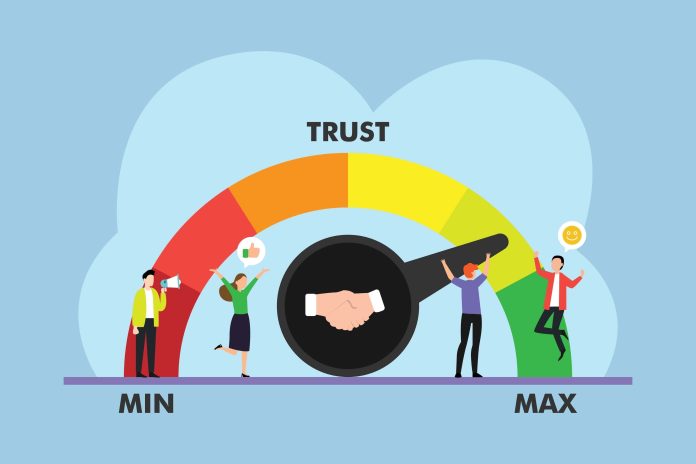
When you think of what it takes to cultivate a positive work environment where employees feel secure, engaged, and set up for success, trust is an important underlying factor. Team members who trust their colleagues and leaders are more likely to be loyal, share ideas, and perform their best—which not only makes for a more pleasant work environment, but ultimately enhances productivity and business outcomes.
But how does an organization build trust across its workforce? It starts with a foundation of respect, appreciation, and a commitment to development. And a cornerstone of this foundation is mentorship.
A thoughtfully designed and executed mentor program has the power to create long-term, meaningful connections among employees, whether they are young professionals or more experienced staff. And when people feel connected, oftentimes improved communication and feelings of belonging come with it (Sage Journals, 2023).
Where to Start
Mentoring programs hold a permanent fixture in much of today’s workforce, with 84 percent of U.S. Fortune 500 companies having established mentoring programs (MentorLoop, Feb. 2023). However, smaller businesses absent of large HR or People and Culture teams may not know where to start. Here are five steps your organization can take to build a new (or refine an existing) mentor program to enhance trust across your employee base:
- Define goals and objectives.
The first step in developing a mentor program is to define its purpose. Each company or department will have its own goals, such as skill development, leadership growth, or employee engagement. Clearly outlining your desired outcomes ensures the program aligns with organizational needs, pain points, and aspirations.
- Develop a mentor program framework.
To ensure a successful mentor program, organizations should develop a structured framework that formalizes expectations and processes. This framework should include:
- Clearly defined roles and responsibilities for mentors, mentees, and those overseeing the program.
- Guidelines on obtaining feedback to continuously refine and improve the program.
- A process for assessing mentee progress and ensuring alignment with organizational values.
- Third party input. Before launching a mentor program, organizations should conduct focus groups or surveys to ensure it is human-centered and informed by employee experiences.
A useful template for mentorship structure is the Mentoring Quality Framework, launched by the City of London and Mayor Sadiq Khan. With the goal of enhancing the city’s mentoring programs and ensuring quality mentor-mentee relationships, the Mentoring Quality Framework was designed to improve youth employment opportunities and boost graduation rates.
To date, more than 100,000 young Londoners have benefitted from the program’s mentorship support. While the Mentoring Quality Framework caters to youth-adult mentoring relationships, its key principles can inform any type of mentorship, including those in corporations big or small.
- Recruit and train mentors.
Once a structured framework is in place, you can begin to recruit and train staff who will serve as mentors.
- Identify mentors who align with the program’s goals and who embody the leadership qualities needed to inspire and guide mentees.
- Ensure there is a broad range in tenure, expertise, and backgrounds to create a well-rounded program.
- Provide comprehensive training to mentors to set expectations and equip them with the skills necessary for building successful relationships.
- Offer continuous support for mentors throughout the process. Ongoing guidance and check-ins help mentors navigate their roles effectively and ensure relationships remain productive while staying true to company values and desired outcomes of the program.
- Prioritize cultural competency.
Cultural competency is essential in developing an effective mentor program. Ensuring the program welcomes and celebrates varied backgrounds, experiences, and perspectives will create a richer learning environment.
Effective mentors play a vital role in cultural competency, by not only fostering a welcoming workplace, but by encouraging cultural competence among their mentees, expanding their awareness of different cultures and work practices. The ability to appreciate and respect other cultures enhances communication, collaboration, and, ultimately, trust among staff. Building these capabilities through mentorship can create a dynamic, workplace where all employees feel valued and supported. Organizations that embrace differences in thought and experience gain a competitive edge, whereas those that limit themselves miss opportunities for innovation and growth.
- Launch and promote internally.
The final step in developing a mentor program is to launch it within the organization and begin pairing interested participants (or mentees) with a mentor—all coordinated by your program oversight. By now, leadership has defined the program’s purpose and goals, developed a framework rooted in cultural competence, and recruited and trained mentors.
A successful rollout strategy should include sharing the new or revamped program through various internal communication channels:
- Employee email communications: Announce the program with clear details and benefits, and next steps to be paired with a mentor.
- Company intranet: Provide a dedicated page with resources, FAQs, and mentorship success stories.
- Town halls and team meetings: Encourage leadership to discuss the program’s benefits and invite additional employees to participate.
A well-structured mentor program does more than just provide career guidance—it cultivates the next generation of leaders. At its core, effective mentorship is rooted in trust, and while trust may take time to develop, the benefits are invaluable.
By fostering strong mentor-mentee relationships, organizations can build a culture of trust, respect, and appreciation, leading to a more engaged workforce and stronger business outcomes. Investing in mentorship is investing in the long-term success of both employees and the organization as a whole.

